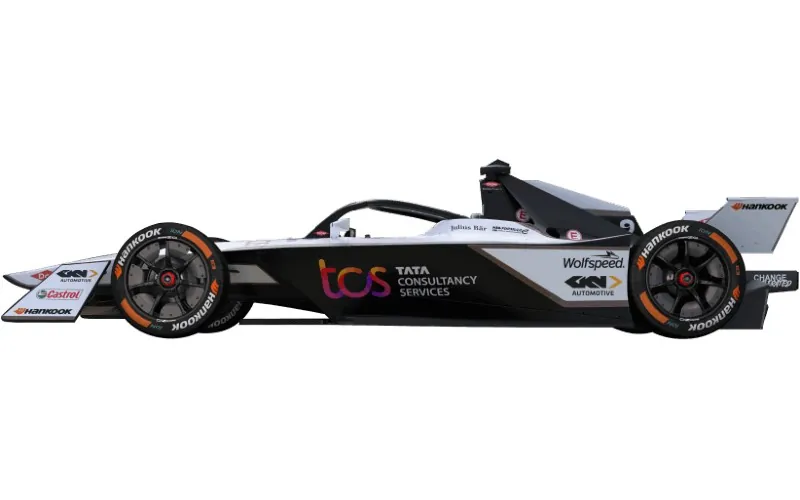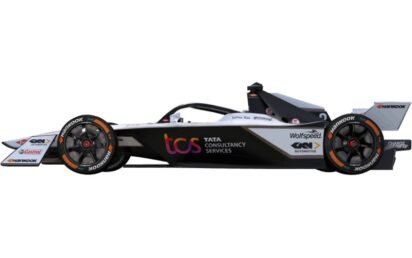Tata Consultancy Services and Jaguar TCS Racing have announced the launch of a cloud-based platform for the racing team’s existing data analytics and software.
The new cloud platform speeds up the flow of data from the racetrack to the racing team base, and vice versa. This helps Jaguar TCS Racing unlock the potential of digital twin technology – as well as other performance insights.
The cloud platform, which runs on Amazon Web Services (AWS), accelerates Jaguar TCS Racing’s critical data analytics. To test and optimise the car’s setup and race strategy, Jaguar TCS Racing needs timely access to data, much of which is then tested using digital twin technology.
During a race weekend, the Jaguar TCS Racing team collects approximately 3 terabytes (TB) of data. Analysis of this data informs the car’s setup, which includes the powertrain, suspension package, energy usage strategy, and software.
“An increasing number of companies are investing in a long-term cloud strategy to gain a competitive advantage and Jaguar TCS Racing is no exception,” said Varun Kapur, Vice President and Senior Managing Partner for Sustainable Manufacturing, TCS.
“Formula E races are often won or lost by fractions of a second. Our cloud technology empowers Jaguar TCS Racing to make time-critical, data-driven decisions that optimise the performance of the Jaguar I-TYPE 6.”
James Barclay, Team Principal, Jaguar TCS Racing, added: “Cloud computing enables our team to drive operational efficiency when developing tools for deployment across racing activity.
“Race events require an increase in available compute power as our systems and engineers actively work to manage and analyse the influx of data being generated on track.
“The compressed nature of Formula E’s weekend format means that access to data is time critical, to provide insights on performance between sessions where available time can be just 45 minutes.”
Formula E is a real-world testbed for technology. Today, TCS uses technology to help Jaguar TCS Racing win races and transfers those learnings from the racetrack to the road.
Findings on-track have already enabled Jaguar Land Rover, using TCS software, to give a 20km range increase to the Jaguar I-PACE electric vehicle – a direct impact of torque management lessons on the racetrack, improving the performance of road cars and the experience for everyday drivers around the world.
Beyond the racetrack, cloud computing can enhance the rapidly growing number of connected, autonomous, shared, and electrified vehicles. Harnessing the power of cloud computing can accelerate the delivery of real-time vehicle feedback, diagnostics, and performance gains across the vehicle ecosystem. Improvements like the ability to instantly communicate what’s around the bend to other cars and dynamic route-mapping can improve passenger and pedestrian safety and experience as well as vehicle performance.


